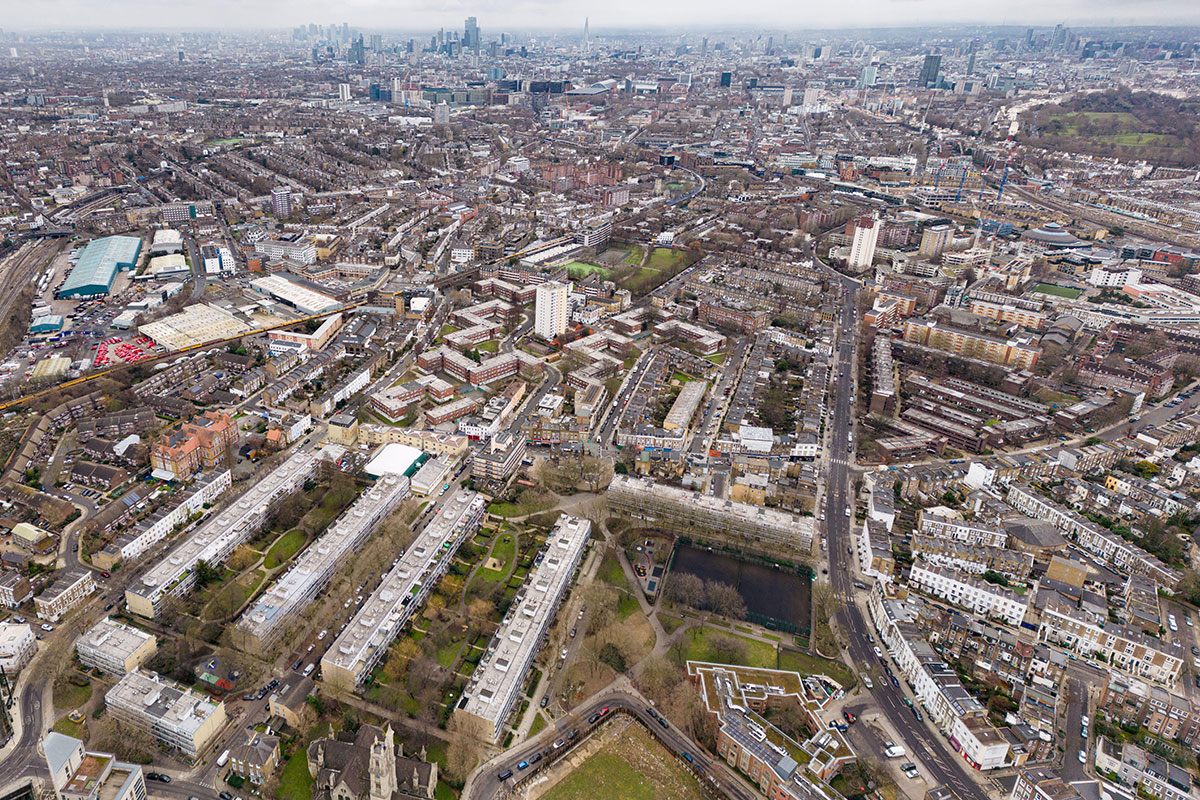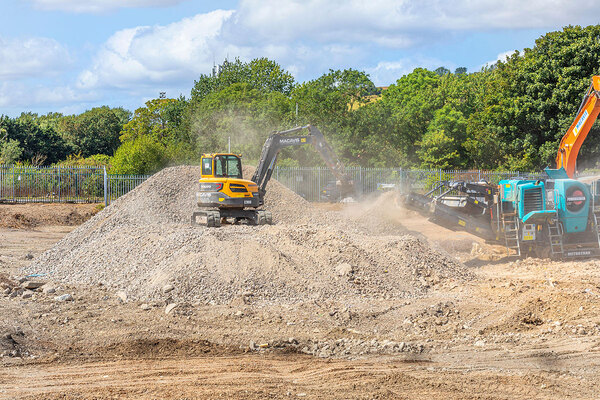You are viewing 1 of your 1 free articles
Nearly 80% of urban communities back brownfield development, research finds
Research by three UK developers has found that the majority of urban communities back brownfield development.

The research, commissioned by British Land, Landsec and Berkeley Group, revealed that almost 80% believe that brownfield regeneration would positively impact their local areas.
Alongside this, 75% of respondents wanted brownfield regeneration prioritised over other types of development.
The research focused on communities in four major urban areas to identify what people want to see from development in their local areas.
It found that 60% of those polled in Cambridge, Camden, Manchester and Newham had “strongly negative” views of currently underdeveloped brownfield sites, viewing them as ugly, dirty and unsafe.
Just over 70% saw the underutilisation of these sites as a “wasted opportunity that needs to be harnessed”, for example to deliver more affordable housing, public spaces and green places.
The research also found that urban communities are open to supporting taller or denser development, providing it unlocks greater benefits for the community.
The three developers are calling on the government to prioritise brownfield development and to promote the delivery of affordable housing by supporting the financial capacity of housing associations, increasing the level and efficiency of grant funding.
They also called for more grant funding to “enable infrastructure delivery and unlock sites” and the use of “locally negotiated” Section 106 agreements to agree benefits on large brownfield projects rather than the Community Infrastructure Levy.
The developers called for greater public participation in the planning and development process by promoting a “more open dialogue between developers, councils and communities” about the potential benefits development can deliver.
British Land, Landsec and Berkeley have also committed to reviewing their own urban brownfield regeneration projects to ensure that the benefits urban communities want to see are delivered.
Simon Carter, chief executive at British Land, said the research “demonstrates that urban communities are overwhelmingly yimby when they are involved in the process and the benefits of development are clearly understood”.
“Contrary to public perception, it is clear that this group wants to see brownfield urban regeneration that delivers for the local community, creating a unique opportunity for new pragmatic policies that leverage the support of this critical demographic to unlock delivery and growth,” he added.
Mark Allan, chief executive at Landsec, said the government should feel “reassured that their ambitious housing targets can be delivered with the consent of local communities”.
“It’s now up to policymakers and the property sector to maximise the potential and delivery of these sites across the country,” he said.
Rob Perrins, chief executive of Berkeley Group, said the research “should be hugely encouraging for ministers as they focus on lifting the regulatory barriers to regeneration and getting more homes built on underused sites”.
The survey results came as the government called for views on a proposed ‘brownfield passport’, which aims to speed planning approvals for urban sites.
As signalled in the National Planning Policy Framework consultation, ministers want to introduce the passport to ensure that where proposals meet design and quality standards, “the default answer is yes”, and applications would be approved automatically.
An MHCLG spokesperson said: “This government will deliver 1.5 million homes and will take a brownfield first approach, so sites which people want to see used will be developed first.
“As part of our ambition to get Britain building again, we have recently announced plans to speed up the approval of urban sites like car parks so we can get on with creating the secure, affordable homes we so desperately need.”
Sign up for our development and finance newsletter
Already have an account? Click here to manage your newsletters











